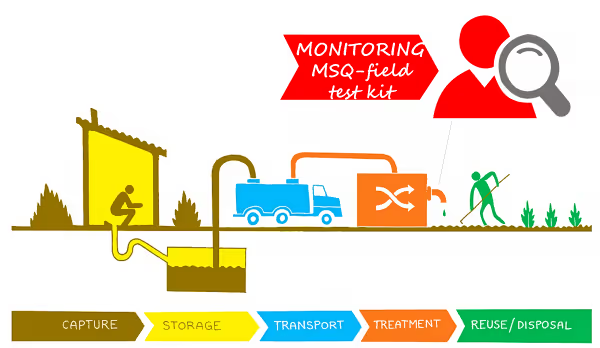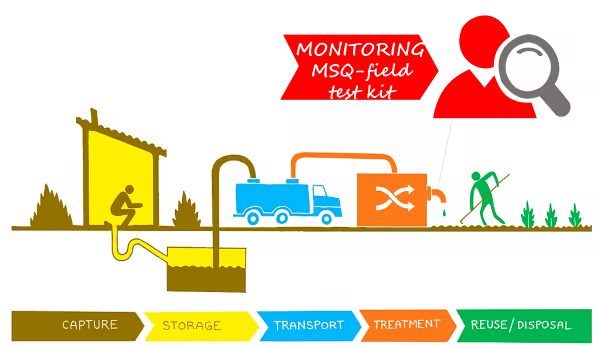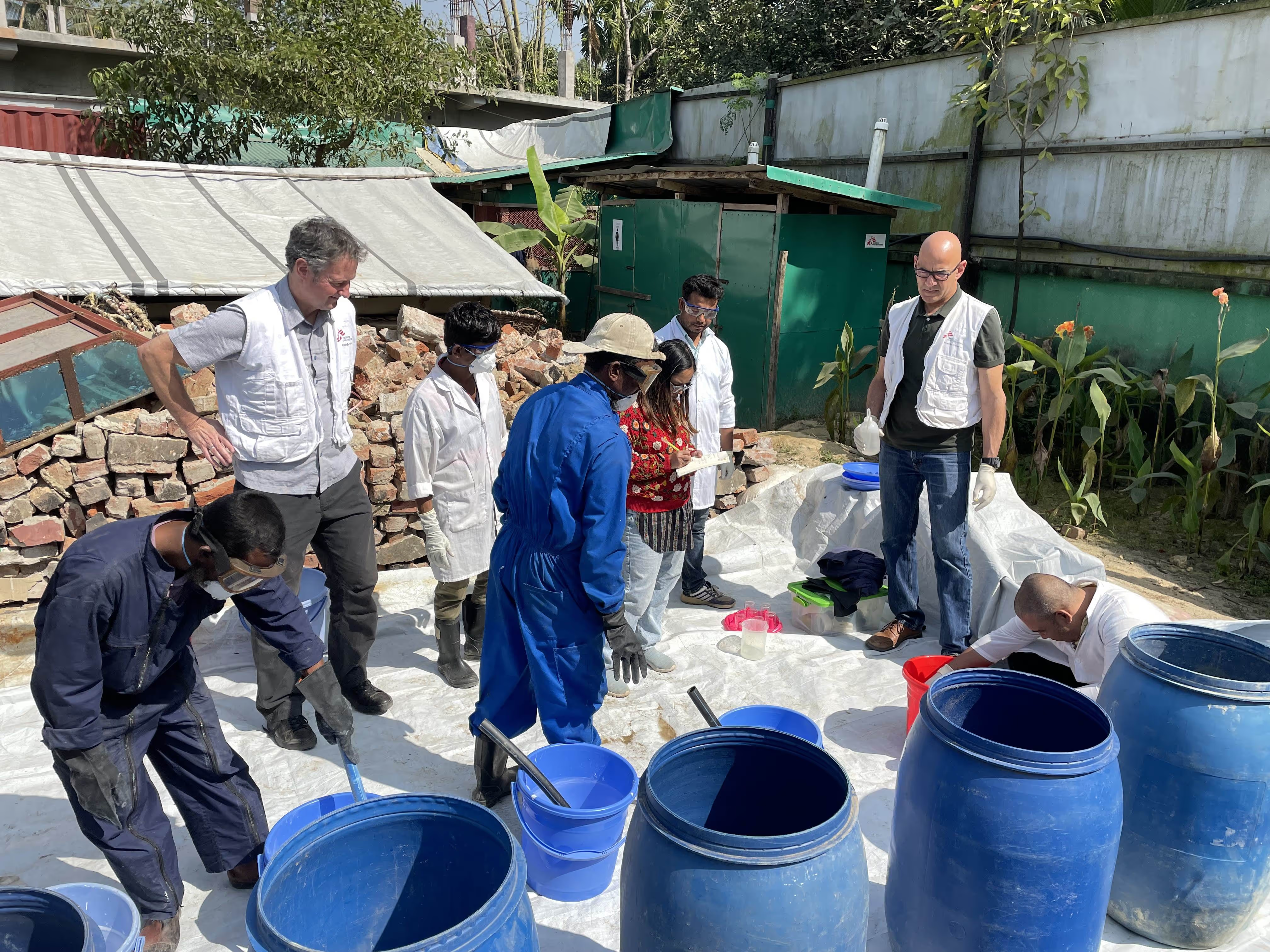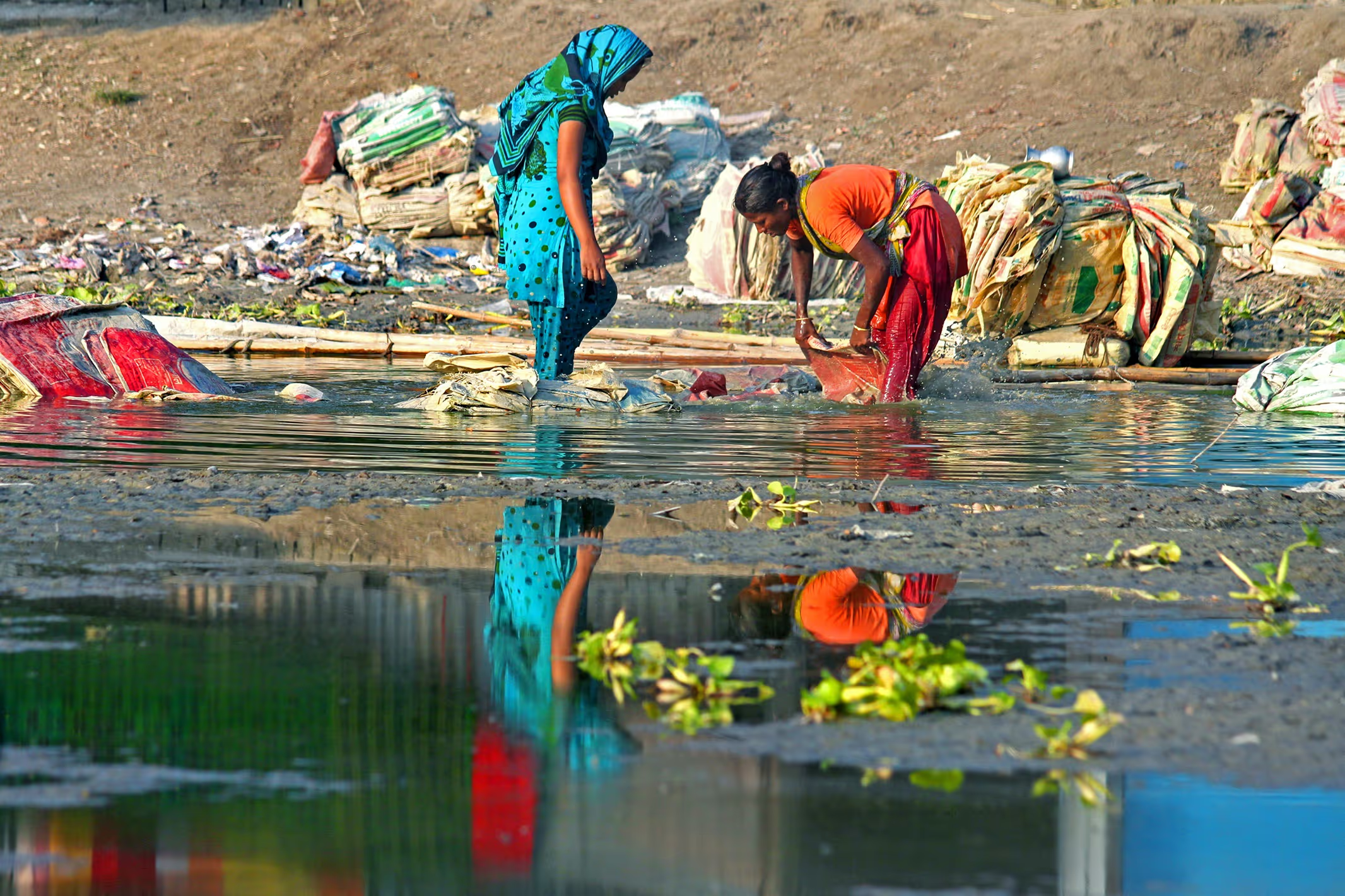The MSQ - Idea

Prehistory of the project
In summer 2015, Georg Ecker (Austrian Red Cross) and I met with William Cater from the IFRC at Austrian Red Cross Mass Sanitation Emergency Response Unit training in Styria. During the training, William held a presentation on the outcomes of the Emergency Sanitation Project Phase I. Later on, we were discussing what the project found out to be missing in the field (field ready lab) and how the University of Natural Resources and Life Sciences could help with this case. Out of these discussions the idea for the Microbial Sludge Quality (MSQ) project was born.

Microbial Sludge Quality Field Test Kit
In an urban emergency, providing adequate sanitation options is an ongoing challenge for humanitarian aid organisations.
In 2013 the Emergency Sanitation Project (ESP) started a collaboration between the International Federation of Red Cross and Red Crescent Movement (IFRC), Waste and Oxfam GB to solve some of the most difficult challenges in provision of adequate sanitation in case of emergencies. ESP aimed to increase the global understanding of current and future emergency sanitation and to propose new concepts and modular technologies for safe excreta disposal in emergency settings that are applicable in a variety of situations. The first phase (2013 - 2015) of the ESP has piloted several treatment processes (e.g. lactic acid fermentation, urea &; lime addition, anaerobic digestion, vermicomposting).
The Challenge
An important result was that continuous analytical quality control is a prerequisite for the stable operation of any treatment process at high throughput rates. Therefore - beside an appropriate technology - an easy to handle, field test kit is required for monitoring purposes.
The Project Idea
MSQ picks up on this finding and aims at the development of an analytical field test capable to allow reliable on-site quality control of sludge treatment processes. The field test kit will offer the possibility to monitor (selected) human pathogens in faecal sludge during the treatment and ensure its safe subsequent usage, e.g. as fertilizer, or disposal.
Author: Johannes Bousek, Boku
Stay updated
Sign up for our newsletter to receive regular updates on resources, news, and insights like this. Don’t miss out on important information that can help you stay informed and engaged.
Related articles



Explore Elrha
Learn more about our mission, the organisations we support, and the resources we provide to drive research and innovation in humanitarian response.